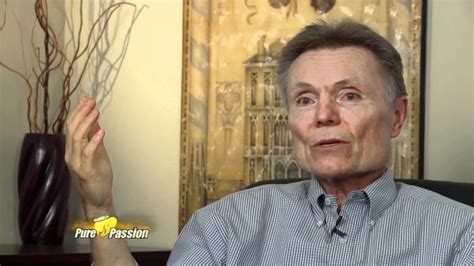A Quote by Heinrich Heine
Of course God will forgive me; that's His job.
Related Quotes
They say that when god was in Jerusalem he forgave his murderers, but now he will not forgive an honest man for differing with him on the subject of the Trinity. They say that God says to me, "Forgive your enemies." I say, "I do;" but he says, "I will damn mine." God should be consistent. If he wants me to forgive my enemies he should forgive his. I am asked to forgive enemies who can hurt me. God is only asked to forgive enemies who cannot hurt him. He certainly ought to be as generous as he asks us to be.
God dealt with our whole situation on the cross; there is nothing left for you to settle. Just say to Him, 'Lord, I cannot forgive and I will no longer try to do it; but I trust that You in me will do it. I can't forgive and love; but I trust that You will forgive and love in my place and that You will do these things in me.'
there is a God, there always has been. I see him here, in the eyes of the people in this [hospital] corridor of desperation. This is the real house of God, this is where those who have lost God will find Him... there is a God, there has to be, and now I will pray, I will pray that He will forgive that I have neglected Him all of these years, forgive that I have betrayed, lied, and sinned with impunity only to turn to Him now in my hour of need. I pray that He is as merciful, benevolent, and gracious as His book says He is.
If you feel you can't forgive, ask God to penetrate your unforgiveness with His love. When we have to do the impossible, God says that the way it happens is "not by might nor by power, but by My Spirit" (Zechariah 4:6). This means that certain things will not be accomplished by human strength, but only by the power of God. The Holy Spirit will enable us to forgive even the unforgivable.
Why do some persons 'find' God in a way that others do not? Why does God manifest His Presence to some and let multitudes of others struggle along in the half-light of imperfect Christian experience? Of course the will of God is the same for all. He has no favorites within His household. All He has ever done for any of His children He will do for all of His children. The difference lies not with God but with us.
"Blessed are the pure in heart, for they shall see God." Can we see God? Of course not. Can we know God? Of course not. If God can be known, He will be God no longer. Knowledge is limitation. But I and my Father are one: I find the reality in my soul. These ideas are expressed in some religions, and in others only hinted. In some they were expatriated. Christ's teachings are now very little understood in this country. If you will excuse me, I will say that they have never been very well understood.
The Risen Christ proclaimed not that we 'have to forgive,' but rather, that at last we CAN forgive-and thereby free ourselves from consuming bitterness and the offender from our binding condemnation. This process requires genuine human anger and grief, plus-and here is the awful cost of such freedom-a humble willingness to see the offender as God sees that person, in all his or her terrible brokenness and need for God's saving power. I would never tell another, 'You have to forgive.'



































